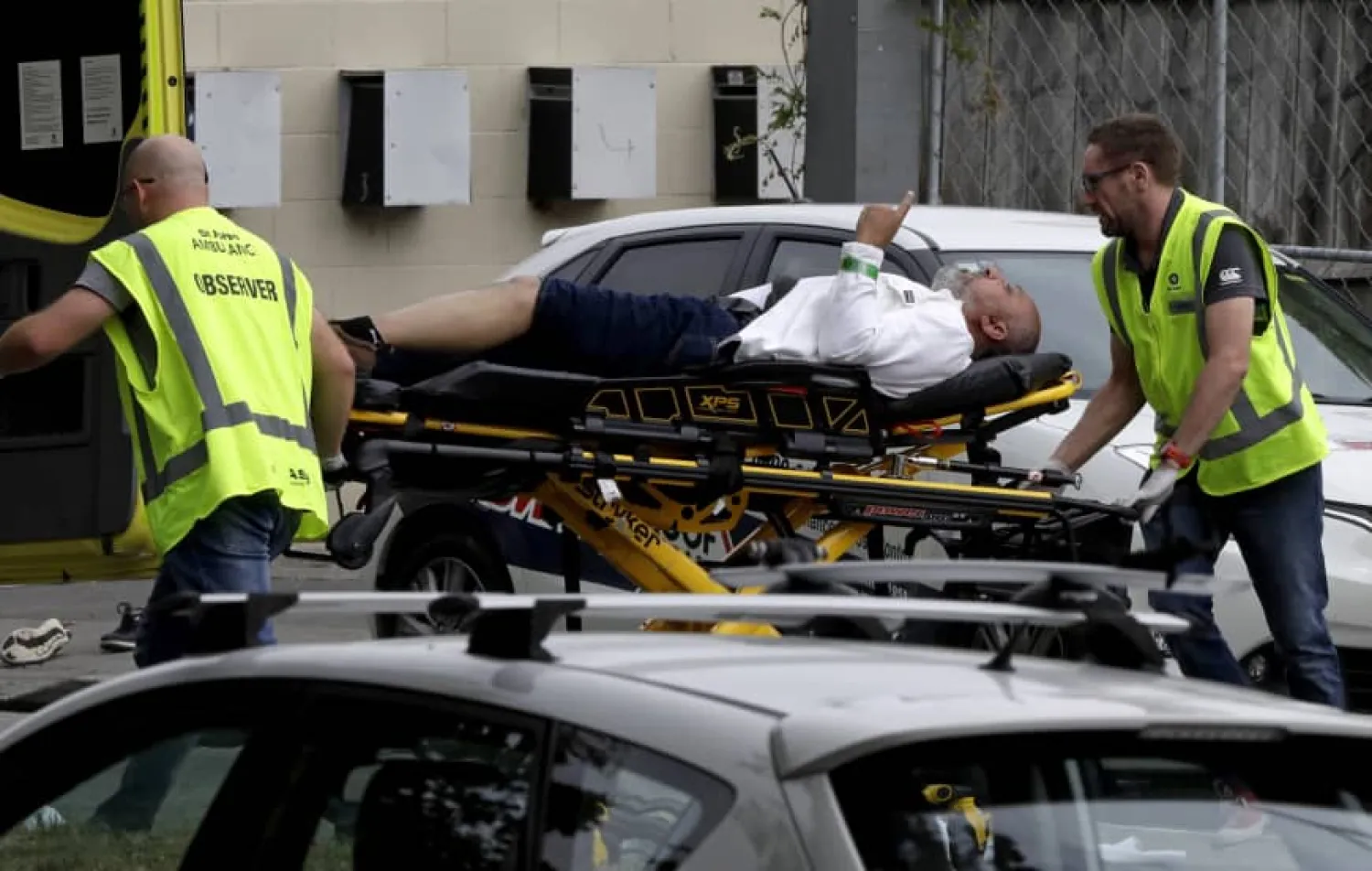The Saudi Foreign Ministry “strongly condemned” on Friday mosque attacks in New Zealand that left scores of people dead and wounded.
“The Kingdom of Saudi Arabia denounces all types of terrorism,” a ministry statement said, citing an official source.
The source reiterated the importance of respecting religions, and extended condolences to the families of victims and the government and people of New Zealand.
The statement also wished the wounded a speedy recovery.
The Saudi Embassy in New Zealand said two Saudi citizens were wounded in the mass shooting at two mosques in Christchurch.
Political and Islamic leaders in the Arab world offered their sympathies.
Among those quickly condemning the attack was Anwar Gargash, the UAE's minister of state for foreign affairs.
He tweeted "heartfelt condolences" to New Zealand.
Gargash wrote: "Our collective work against violence & hate must continue with renewed vigor. Our thoughts & prayers are with the families of the victims."
Dubai's ruler, Sheikh Mohammed bin Rashid Al Maktoum, tweeted his condolences, noting that "on a day of peace like Friday and at a place of worship like the mosque, we witnessed the most heinous crime of religious hatred."
In a statement, Egypt’s Al-Azhar University said the attacks had "violated the sanctity of the houses of God".
"We warn the attack is a dangerous indicator of the dire consequences of escalating hate speech, xenophobia, and the spread of Islamophobia."
More had to be done to promote the co-existence of different religions and cultures, the university said.
The Palestinian chief peace negotiator, Saeb Erekat, called the attack a “consequence of racist ideologies that continue trying to promote religious wars”.
Bahrain, Kuwait and Oman also condemned the attack.
The secretary-general of the 57-nation Organization of Islamic Cooperation, Youssef al-Othaimeen, said in a statement the attack "served as a further warning on the obvious dangers of hate, intolerance, and Islamophobia."
Al-Othaimeen called on New Zealand "to provide more protection to the Muslim communities living in the country."
He also offered his condolences for those affected by the mass shooting.
The UN said Secretary-General Antonio Guterres "is shocked and appalled at the terrorist attack" and is urging people everywhere to work better together "counter Islamophobia and eliminate intolerance and violent extremism."
UN spokesman Stephane Dujarric told reporters Friday that the UN chief stressed "the sanctity of mosques and all places of worship."
Pakistan's foreign ministry says four Pakistanis were wounded in the mass shootings.
Ministry spokesman Mohammad Faisal tweeted that five other Pakistani citizens are missing after Friday's attacks.
Separately, the ministry said Pakistan views the attacks as an "assault on the values of freedom of conscience and association common to all mankind."
It asked New Zealand to take immediate action to bring the perpetrators to justice and ensure the safety of the Muslim community.
Turkish President Recep Tayyip Erdogan said at least three Turkish citizens were injured in the attacks and that he has spoken to one of them.
Addressing an election rally on Friday, Erdogan described a suspect in the attacks as "impertinent, immoral, vile and scum" and said he had chosen innocent worshippers as an easy target.









